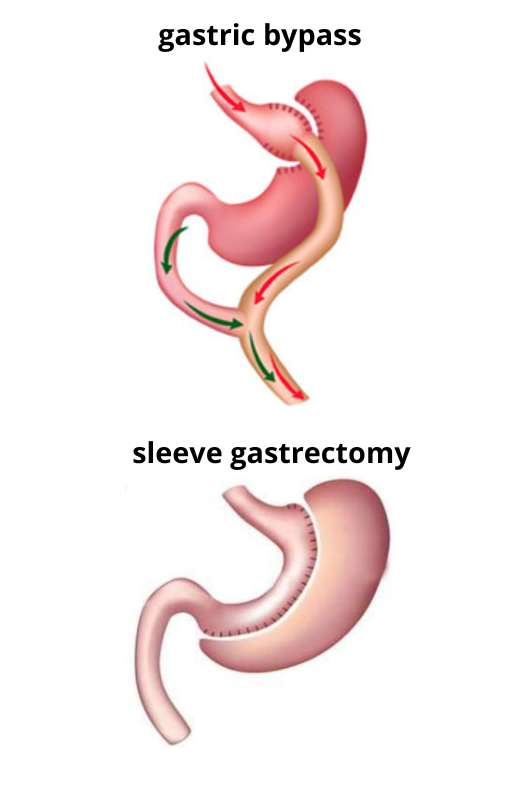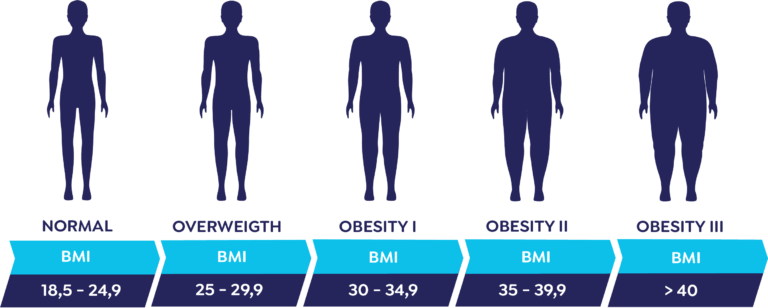Metabolic Surgery: Definitive solution to Obesity-Related Disorders
Metabolic surgery offers hope of quality recovery for those patients with diseases associated with obesity and overweight.
If you've been wrestling with obesity and the health problems that come with it for a while, I know firsthand how tough it can be to keep your weight in check and stave off related diseases. I'm Dr. Ruben Luna, a Bariatric Surgeon in Colombia. My team and I have an array of resources at our disposal to assist those grappling with obesity, and metabolic surgery is one such powerful tool.
This post aims to give you a comprehensive understanding of metabolic surgery - what it involves, how it functions, its benefits and associated procedures. We'll also delve into the distinction between metabolic and bariatric surgery, the role of metabolic surgery in diabetes management, and how to determine if you're a suitable candidate for this procedure.
Understanding Metabolic Surgery
Rather than merely promoting weight loss, metabolic surgery – a specific form of weight loss surgery – primarily focuses on enhancing metabolic health. It sets itself apart from traditional bariatric surgery, which predominantly seeks to diminish stomach size to restrict food consumption. Instead, metabolic surgery strives to alter how your body breaks down food and manages crucial hormones like insulin.
Metabolic Surgery: Function and Impact

Metabolic surgery is a surgical intervention designed to enhance metabolic health through alterations to the digestive system. This category of surgery encompasses various procedures like gastric bypass, sleeve gastrectomy. All these surgeries aim to modify the body’s food digestion process and nutrient absorption mechanism.
Take gastric bypass surgery as an example. In this procedure, the surgeon forms a small pouch at the stomach’s upper part, which is then linked to the small intestine. This not only limits the volume of food that can be consumed at once but also modifies how nutrients are absorbed by the body. On the other hand, sleeve gastrectomy involves removing a significant part of the stomach, leaving behind a smaller, banana-like stomach that both restricts food consumption and influences the body’s hormone production, including ghrelin, an appetite-regulating hormone.
How Metabolic Surgery Can Help Manage Obesity-Related Disorders
Metabolic surgery has proven its efficacy in managing an array of diseases related to obesity, such as type 2 diabetes, high blood pressure, and sleep apnea. Research indicates that metabolic surgery can facilitate substantial weight loss, enhance blood sugar control, and decrease dependency on medication.
A study published in the New England Journal of Medicine demonstrated that gastric bypass surgery significantly improved blood sugar control in patients with type 2 diabetes. Similarly, research featured in the Journal of the American Medical Association linked sleeve gastrectomy to remarkable improvements in both blood pressure and cholesterol levels.
Understanding Metabolic Surgery Procedures

While metabolic surgery and bariatric surgery are terms often used interchangeably, there is a nuanced difference between the two.
Bariatric surgery primarily refers to procedures performed to induce weight loss in individuals who are significantly overweight or obese. These procedures, such as gastric bypass, sleeve gastrectomy, work by reducing the size of the stomach or rerouting the digestive system.
Se more about Bariatric Surger
On the other hand, metabolic surgery, refers to these same procedures, but the term emphasizes their use for the management and potential resolution of metabolic diseases, particularly type 2 diabetes, independent of weight loss. The term «metabolic surgery» reflects a growing understanding that these procedures can have profound effects on the body’s metabolic processes and can improve metabolic diseases.

So, while all metabolic surgeries can be considered bariatric surgeries, not all bariatric surgeries are performed for metabolic disease control. The choice of term often depends on the primary objective of the surgery: weight loss or metabolic control.
Who is candidate for a Metabolic Surgery and Preparationd
Metabolic surgery is typically suggested for individuals with a body mass index (BMI) of 40 or higher, or those with a BMI of 35 or higher accompanied by at least one obesity-related health condition like type 2 diabetes, high blood pressure, or sleep apnea. Candidates for metabolic surgery should have also explored other weight loss methods, such as dieting and exercise, without achieving the desired results.
See more about BMI Here
Metabolic surgery has proven to be a potent tool in the management of type 2 diabetes. Research suggests that metabolic surgery can promote significant weight loss, improve blood sugar regulation, and decrease reliance on medication.
Preparation for metabolic surgery entails several steps, including consultations with a surgeon to discuss the operation, its potential risks and benefits, and undergoing medical evaluations to confirm that you’re healthy enough for surgery. Lifestyle modifications like quitting smoking and aiming for weight loss may also be necessary.

Conclusion
Metabolic surgery has proven its effectiveness in managing obesity-related conditions, including type 2 diabetes, high blood pressure, and sleep apnea. By altering the body’s food processing and hormonal regulation, metabolic surgery can catalyze significant weight loss and enhance health outcomes. If you’re battling obesity and associated health problems, metabolic surgery could be a viable option. To learn more about this procedure’s risks and benefits, consult your healthcare provider or a metabolic surgery specialist.






